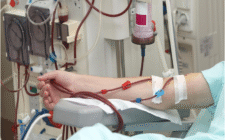Heart attacks, often perceived as a condition affecting older adults, are increasingly becoming a concern for younger populations. Factors such as lifestyle choices, diet, and stress contribute to this worrying trend of bringing down the average heart attack age. Understandinghow can we avoid heart attacks is crucial, especially for those in their 20s who can take proactive steps to mitigate the risk. This article explores nine effective ways to reduce the risk of heart attacks in your 20s, backed by facts and figures related to heart attacks, the worrying aspect of the heart attack age, and how to prevent them.
In most cases, heart attacks don’t give a lot of prior warning before striking. Rush to a super-speciality hospital in Patna on an emergency basis if you, or your loved ones, are encountering heart attack symptoms.
Adopting a Heart-Healthy Diet
A balanced diet is fundamental to cardiovascular health. Consuming a variety of fruits, vegetables, whole grains, lean proteins, and healthy fats can significantly reduce the risk of heart disease, thereby stemming the concerning trend of falling heart attack age as well. According to the American Heart Association, a diet rich in nutrients and low in trans fats, saturated fats, cholesterol, and sodium can help avoid a heart attack. Incorporating foods high in omega-3 fatty acids, such as salmon and flaxseeds, also supports heart health.
Exercise Regularly
Regular physical activity and training are paramount to ensuring good heart health. The CDC recommend at least 150 minutes of moderate-intensity aerobics and freehand exercises, but these will differ to a certain extent based on your health and fitness goals. Exercise and training help to maintain a healthy weight, reduce blood pressure, and improve cholesterol levels, all of which are crucial for preventing heart attacks.
Maintain a Healthy Weight
Obesity is known to be a massive facilitator of heart attacks. Research shows that maintaining a healthy weight can lower the risk of heart disease. Body Mass Index (BMI) is a useful measure to determine if you’re in a healthy weight range. A BMI between 18.5 and 24.9 is considered to be within the normal range. Keeping a healthy weight through diet and exercise can help avoid a heart attack.
Avoid Smoking and Limit Alcohol Intake
Smoking is a leading cause of heart disease. Quitting smoking can significantly improve heart health, regardless of how long you’ve been smoking. Additionally, excessive alcohol consumption can lead to high blood pressure, heart failure, and even stroke. Limiting alcohol intake to moderate levels can help reduce these risks.
Manage Stress
Chronic stress is linked to an increased risk of heart attacks. Stress management techniques such as mindfulness, meditation, deep breathing exercises, and yoga can help lower stress levels, something that would have a direct effect on the heart attack age ranges that we are witnessing nowadays. According to the American Psychological Association, managing stress effectively is crucial for maintaining overall heart health.
Get Regular Health Screenings
Regular health check-ups from a super-speciality hospital in Patna can detect early signs of heart disease. Monitoring blood pressure, cholesterol levels, and blood sugar levels can provide crucial insights into your cardiovascular health. Early detection and management of conditions like hypertension and diabetes can majorly reduce the risk of heart attacks.
Get Enough Sleep
Proper sleep has a major role to play when it comes to maintaining good heart health. Poor sleep quality and duration are associated with an increased risk of heart disease. According to the National Sleep Foundation, 7-9 hours of sleep per night should be considered adequate for adults. Establishing a regular sleep schedule and creating a restful environment can help improve sleep quality and reduce the risk of heart attacks.
Limit Sugar and Salt Intake
Excessive consumption levels of sugar and salt can lead to high BP and obesity, and these two are known to be massively responsible for heart diseases. Toning down, and limiting the amount of salt and sugar that are being consumed, either through tea/coffee or other food items, can have a massive impact on the chances of contracting a heart disease in this day and age.
Stay Hydrated
Proper hydration is essential for maintaining blood volume and enabling the heart to pump efficiently. Dehydration can result in a heightened load on the heart, something that would translate into increased heart rate and BP. Drinking adequate amounts of purified water daily supports overall cardiovascular health and can help avoid a heart attack.
Facts and Figures
- According to the World Health Organization (WHO), cardiovascular diseases are the leading cause of death globally, claiming an estimated 17.9 million lives each year
- Studies show that adopting a healthy lifestyle can reduce the risk of heart attacks by up to 80%.
Conclusion
Taking proactive steps in your 20s to maintain heart health can significantly reduce the risk of heart attacks as you age. By adopting a heart-healthy diet, exercising regularly, maintaining a healthy weight, avoiding smoking and excessive alcohol, managing stress, getting regular health screenings, ensuring adequate sleep, limiting sugar and salt intake, and staying hydrated, top-notch heart health can be ensured. Understanding how we can avoid heart attacks and visiting a super-speciality hospital in Patna on an emergency basis if the symptoms and signs are to appear answers how can we avoid heart attacks in this day and age.




